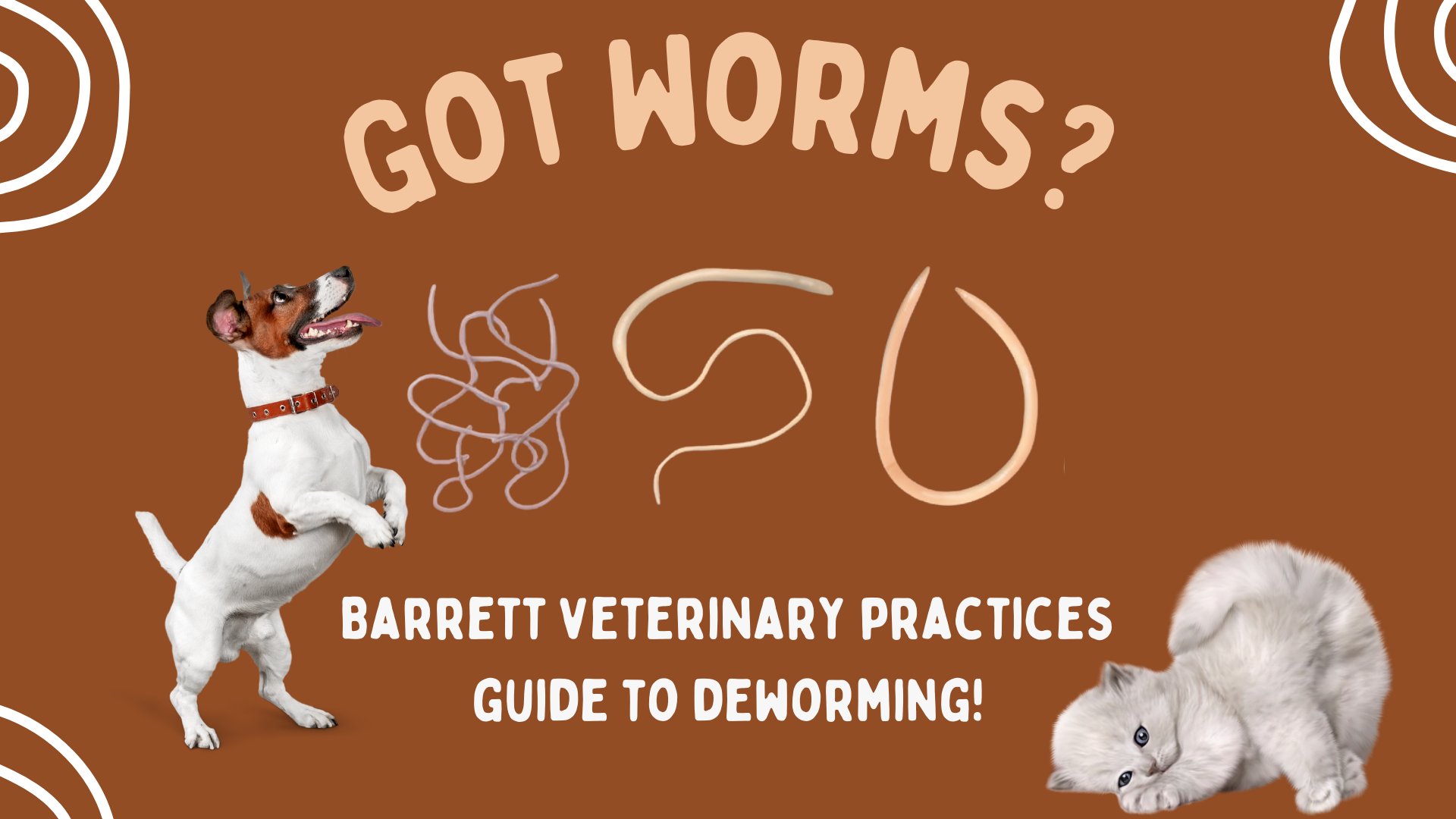Barrett Vets Guide to Deworming!
It’s fair to say we LOVE our pets … but so do internal parasites.
There’s a reason we are so anal (yes, hilarious…) about pet parents getting their new puppies and kittens getting on a deworming schedule. Seasoned pet owners, should also be making sure your adult doggos and kitties are dewormed regularly. Parasitic intestinal worms in dogs are that common. It’s important to note that a lot of these intestinal parasites are zoonotic. This means that they can also affect humans, UGH!
Why is deworming important?
There are often no symptoms when your beloved furry friend is infected with worms. Some dogs will have diarrhea or can be quite thin but often they seem perfectly normal. However, being infected by a parasite can deplete the body of important nutrients and create inflammation in the intestines.
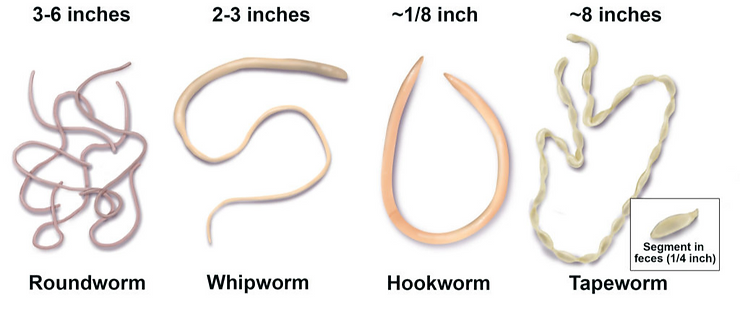
Let’s learn about Tapeworms!
Tapeworms are long, flat worms that attach themselves to your dog or cats intestines. A tapeworm body consists of multiple parts, or segments, each with its own reproductive organs. Tapeworm infections are usually diagnosed by finding segments—which appear as small white worms that may look like grains of rice or seeds—on the rear end of your dog, in your dog’s feces, or where your dog lives and sleeps.
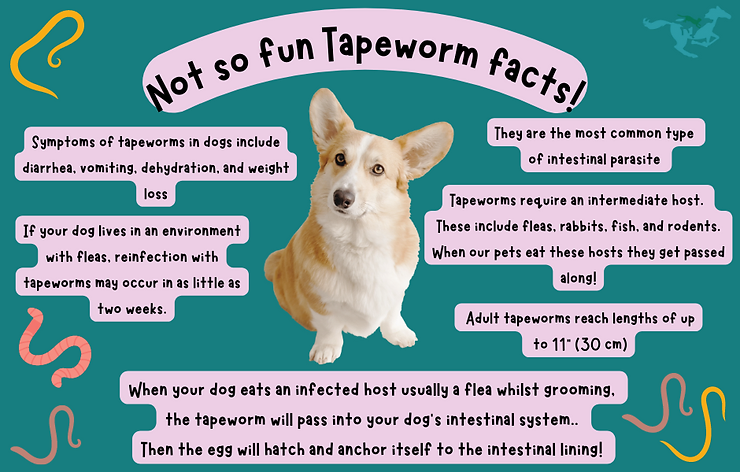
Let’s learn about Hookworms!
Similar to tapeworms and roundworms, hookworms are intestinal parasites that live in the digestive system of your dog or cat. The hookworm attaches to the lining of the intestinal wall and feeds on your dog’s blood. Its eggs are ejected into the digestive tract and pass into the environment through your dog’s feces.
Young hookworms that hatch from hookworm eggs live in the soil. These larvae can infect your dog simply through contact and penetration of the skin and through the dog eating the larvae when they ingest dirt or during their routine cleaning of paws and body.
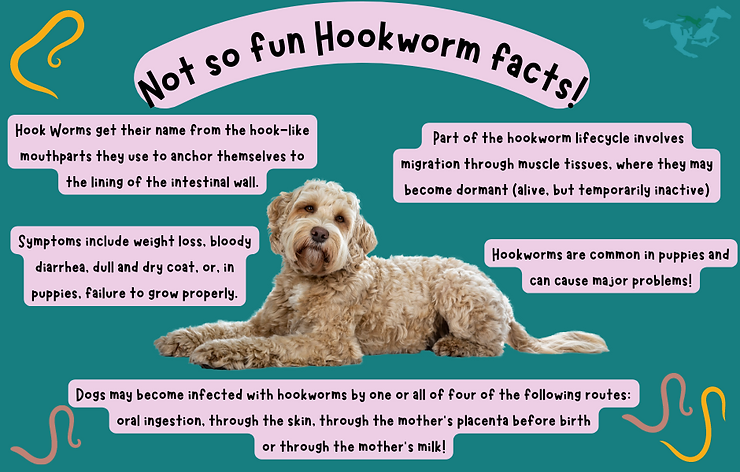
Let’s learn about Roundworms!
Roundworms are the most common of the parasitic worms found inside a dog. Almost all dogs become infected with them at some time in their lives, usually as puppies. Roundworms may be contracted in different ways, making them easy to spread and hard to control.
Your dog may be infected with roundworms from the time it is born because often the mother passes the worms to the puppy while it is still in her body.
Roundworms can also develop in a puppy after it is born when the puppy eats larvated eggs from the environment or drinks worm larvae (young worms) in the mother’s milk. Another way roundworms are passed is when roundworm larvae are present in the tissues of a mouse or another small mammal and the puppy eats the animal.
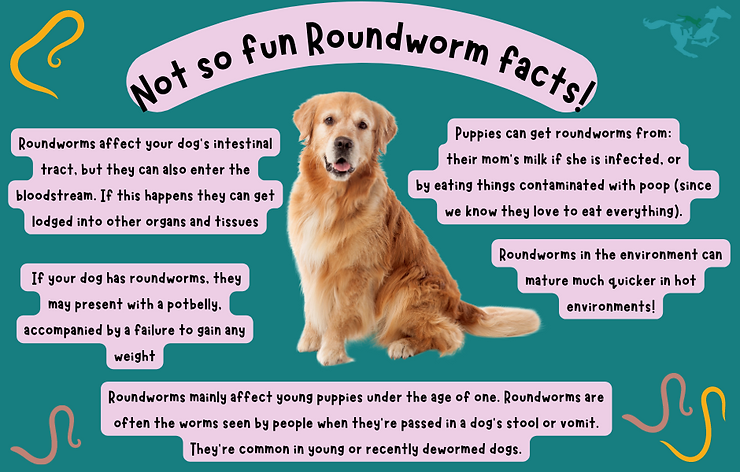
Let’s learn about Whipworms!
The whipworm is one of the four most common intestinal parasites of dogs. Whipworms reside in the cecum, which is inside your dog’s body where the small intestine and large intestine meet. Dogs become infected with whipworms by swallowing infective whipworm eggs in soil or other substances that may contain dog feces.
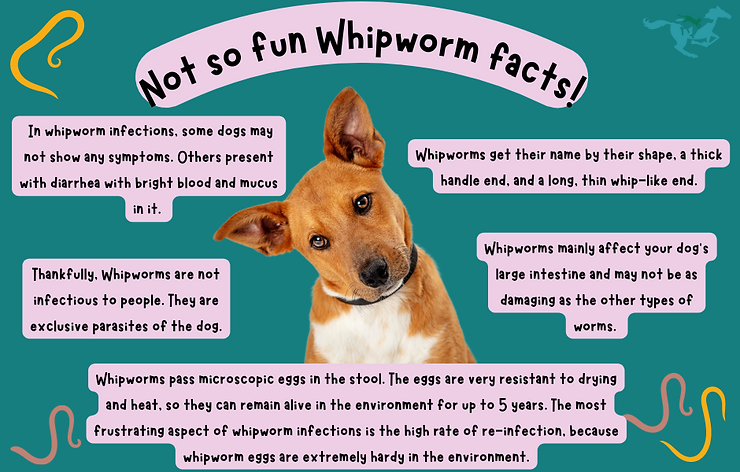
Did you know – Ringworm is not actually a worm! It’s a type of fungus, named for the red, itchy, ring shape it leaves on the skin. Ringworm, scientifically known as dermatophytes, is a collection of pathogenic fungi.
After reading about these parasites you are probably thinking, ugh how do I prevent these evil things entering my house????
The easiest way for prevention is making sure your pets are on a deworming schedule:
- Dogs should be given dewormer every three months, especially in the warmer months.
- Cats should be dewormed every three months if they have access to outside or are actively mousing. Otherwise we recommend deworming every six months for your strictly indoor kitties.
- Some infections can be prevented by removing your dog’s feces regularly from your yard.
- Fleas are an intermediate host for the most common kind of worms, so consistent, safe, and effective flea control is an essential prevention measure.
- It’s obvious but… prevent your dog or cat from eating wild animals that may carry worms, such a mice, fish, birds (sorry kitties!).
If you are worried about worms or are unsure if your pet is up to date on dewormer, we are always here to help.

